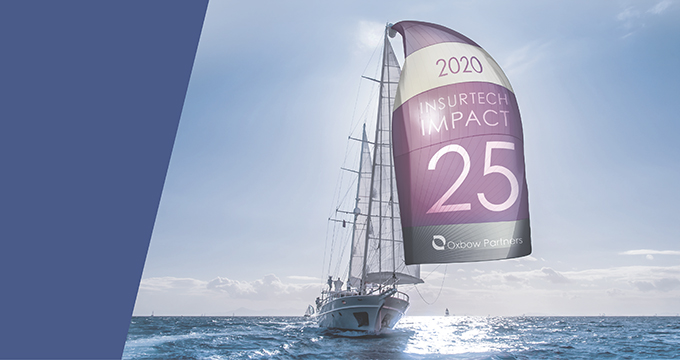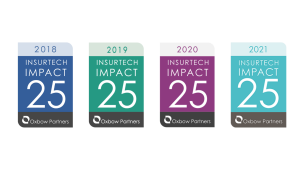Impact 25 2020: Barbarians, Samaritans or Trojans at the gate?
February 16, 2020 Chris Sandilands
On 19 February Oxbow Partners will publish the third edition of the InsurTech Impact 25.
Along with our Advisory Board, we spent five months reviewing over 100 applications to select this year’s Members. Members span the value chain and cover both non-life and life insurance, personal lines and commercial.
There is a shift from Supplier InsurTechs to distribution and product innovation in this year’s Membership. This is interesting: in previous years we had noted a shift away from Distribution InsurTechs to B2B business models as startups struggled to penetrate disengaged markets. Perhaps this year’s cohort is an indication that startups have found B2B sales difficult also.
Barbarians, Samaritans or Trojans at the gate?
The prevailing narrative is that InsurTechs have moved from disruption to collaboration. We note in the report that many InsurTechs initially positioned themselves as “Barbarians at the gate”, often talking about “fixing” a “broken” industry. Lemonade had the most aggressive rhetoric when it launched (“instead of making our money from denying claims, as is the norm within the industry, we treat your premiums as if it’s your money”).
Based on our analysis, we agree. The rhetoric has been dialled back and some companies – Trōv and Slice being two good examples – have shifted from competitive to collaborative business models entirely.
So how does this observation tally with the shift in our Membership to distribution and proposition innovation – business models which, on the face of it, compete with insurers?
We see no contradiction; our Members are focused on specific niches and are therefore positioning themselves as partners to access new risk pools.
New risk pools – the key to growth in the digital decade
In the paper we talk about the 2020s being the “digital decade”. Our analysis looks at the market cap of Europe’s leading insurance groups, and we note that the industry is in flux more than people might have noticed.
We speculate that 2030’s winners will be those companies who were able to build digital propositions that attracted the millions of millennials who became first-time insurance buyers in the 2020s, who innovated their use of data and applications, and who built the saleable infrastructure that enabled the next wave of consolidation.
The 2020 digital agenda is much bigger than InsurTech, but InsurTech could play an important role as we describe in the report.
Access the report



